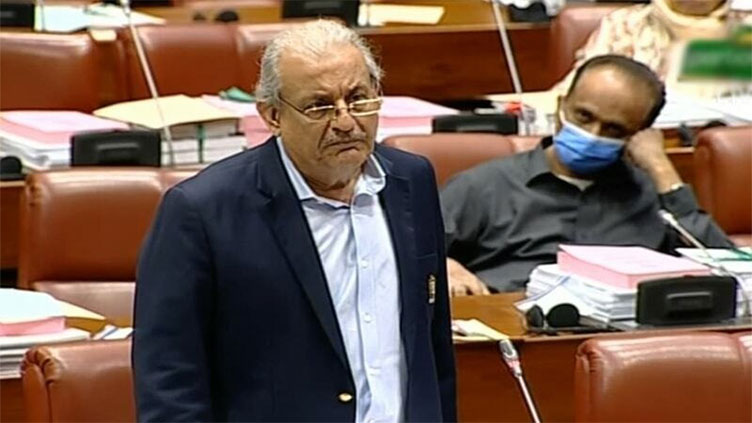EBay And Section 230: A Judge's Ruling On Banned Chemical Listings

Table of Contents
Understanding the Case: eBay's Policies and the Allegations
The case revolves around the listing and sale of specific hazardous chemicals on eBay. While eBay maintains strict policies prohibiting the sale of prohibited items, including various hazardous or regulated chemicals, allegations arose concerning the platform's failure to adequately prevent the listing and sale of these banned substances. The specific chemicals involved are not publicly named in all details due to ongoing legal proceedings, but they reportedly include certain precursors used in the manufacture of illicit narcotics and other dangerous chemicals regulated under various federal and state laws.
eBay's policies regarding prohibited items are extensive, outlining a complex system of verification and moderation. However, the plaintiff argued that these processes were insufficient to prevent the sale of the banned chemicals. The legal complaint filed against eBay highlighted instances where prohibited chemical listings remained active for extended periods, suggesting a failure in eBay's moderation system.
- Specific examples of banned chemicals: While specific names are not publicly available to avoid identifying the case, categories included precursors for explosives and highly toxic substances.
- Explanation of eBay's verification and moderation processes: eBay utilizes automated systems and human moderators to scan listings and remove prohibited items. However, the effectiveness of this system was called into question by the case.
- Details of the legal complaint filed against eBay: The complaint alleged negligence, arguing that eBay failed to exercise reasonable care in preventing the sale of dangerous chemicals.
Section 230 and its Relevance to Online Marketplaces
Section 230 of the Communications Decency Act of 1996 is a cornerstone of internet law in the United States. It generally protects online platforms from liability for user-generated content. The core argument in this case centered on whether eBay could claim protection under Section 230, given the allegations that it failed to remove prohibited chemical listings despite having knowledge of their presence.
The plaintiff argued that eBay's failure to effectively moderate its platform demonstrated a lack of "good faith" effort, potentially removing its Section 230 protections. The judge's interpretation of this "good faith" requirement is central to the decision and has far-reaching implications for other online marketplaces.
- Key provisions of Section 230: Section 230 shields online platforms from being treated as publishers or speakers of user-generated content.
- The "good faith" requirement of Section 230: While not explicitly stated, courts have often interpreted Section 230 to require a good faith effort by platforms to moderate content.
- Previous legal precedents regarding Section 230 and online marketplaces: The ruling builds upon existing case law, clarifying the boundaries of Section 230 protection for online marketplaces selling potentially dangerous products.
The Judge's Ruling and its Implications
The judge ruled partially in favor of the plaintiff, finding that eBay's moderation efforts were insufficient in this specific case, and therefore did not meet the "good faith" requirement under Section 230. This partial loss for eBay significantly impacts the platform's legal standing regarding the sale of regulated goods. The judge’s legal reasoning emphasizes the responsibility of online marketplaces to actively combat the sale of dangerous items.
This ruling sends a clear message to other e-commerce platforms, such as Amazon, that simply having policies in place is not enough. Proactive and effective content moderation is crucial to maintain Section 230 protection.
- Key points of the judge's opinion: The judge highlighted the inadequacy of eBay's moderation processes as a key factor in the decision.
- Impact on eBay's legal standing: The ruling increases eBay's legal vulnerability concerning the sale of regulated goods.
- Potential effects on other e-commerce platforms like Amazon: This decision sets a precedent that could expose other platforms to similar legal challenges.
- Changes in regulatory compliance procedures that may be necessary: Online marketplaces may need to invest significantly in improved monitoring and moderation technologies.
The Future of eBay and Section 230 Compliance
In response to the ruling, eBay is likely to enhance its policies and procedures. This might involve increased investment in artificial intelligence-driven content moderation technologies, more rigorous seller verification processes, and potentially stricter listing guidelines for regulated products. However, navigating these changes will be an ongoing challenge.
The legal uncertainty surrounding Section 230 remains, particularly concerning the definition of "good faith" efforts in content moderation. Future legal challenges concerning banned items and the interpretation of Section 230 are almost certain.
- Potential changes to eBay's listing policies: Expect stricter guidelines, improved keyword detection, and more robust verification processes.
- Increased investment in content moderation technology: AI and machine learning will likely play a larger role in identifying and removing prohibited listings.
- Enhanced seller verification procedures: More stringent background checks and seller qualification processes may be implemented.
- Ongoing legal uncertainties regarding Section 230: The interpretation of Section 230 remains a fluid area of law, leading to ongoing uncertainty for online marketplaces.
Conclusion: Navigating the Legal Landscape of eBay and Section 230
The judge's ruling on eBay's liability for banned chemical listings has significantly altered the legal landscape for online marketplaces. The decision highlights the crucial importance of proactive and effective content moderation in maintaining Section 230 protection. The ongoing challenges for online platforms involve striking a balance between fostering a free and open marketplace while ensuring compliance with laws concerning regulated products. The case’s impact on "eBay and Section 230" underscores the need for continuous adaptation and improvement in online marketplace governance.
Stay informed on the evolving legal landscape surrounding eBay and Section 230 by following industry news and legal updates related to online marketplaces and the sale of regulated goods. Understanding these complexities is crucial for both sellers and platforms.

Featured Posts
-
 Updated Fan Graphs Power Rankings March 27 To April 6
Apr 23, 2025
Updated Fan Graphs Power Rankings March 27 To April 6
Apr 23, 2025 -
 Extreme Price Hike Broadcoms V Mware Proposal Sparks Outrage From At And T
Apr 23, 2025
Extreme Price Hike Broadcoms V Mware Proposal Sparks Outrage From At And T
Apr 23, 2025 -
 Le Pitch Hipli Colis Reutilisables Pour Un E Commerce Responsable
Apr 23, 2025
Le Pitch Hipli Colis Reutilisables Pour Un E Commerce Responsable
Apr 23, 2025 -
 Athletics Suffer Historic Defeat At The Hands Of The Brewers
Apr 23, 2025
Athletics Suffer Historic Defeat At The Hands Of The Brewers
Apr 23, 2025 -
 7 Nisan Pazartesi Guenue Tv De Hangi Diziler Yayinlanacak
Apr 23, 2025
7 Nisan Pazartesi Guenue Tv De Hangi Diziler Yayinlanacak
Apr 23, 2025
Latest Posts
-
 How To Watch And Enjoy Celebrity Antiques Road Trip
May 10, 2025
How To Watch And Enjoy Celebrity Antiques Road Trip
May 10, 2025 -
 Exploring The Themes Of Wynne And Joanna All At Sea
May 10, 2025
Exploring The Themes Of Wynne And Joanna All At Sea
May 10, 2025 -
 Wynne Evans Dropped From Go Compare Ads After Sexism Scandal
May 10, 2025
Wynne Evans Dropped From Go Compare Ads After Sexism Scandal
May 10, 2025 -
 Celebrity Antiques Road Trip Top Moments And Memorable Finds
May 10, 2025
Celebrity Antiques Road Trip Top Moments And Memorable Finds
May 10, 2025 -
 Exploring The World Of Celebrity Antiques Road Trip A Comprehensive Overview
May 10, 2025
Exploring The World Of Celebrity Antiques Road Trip A Comprehensive Overview
May 10, 2025
